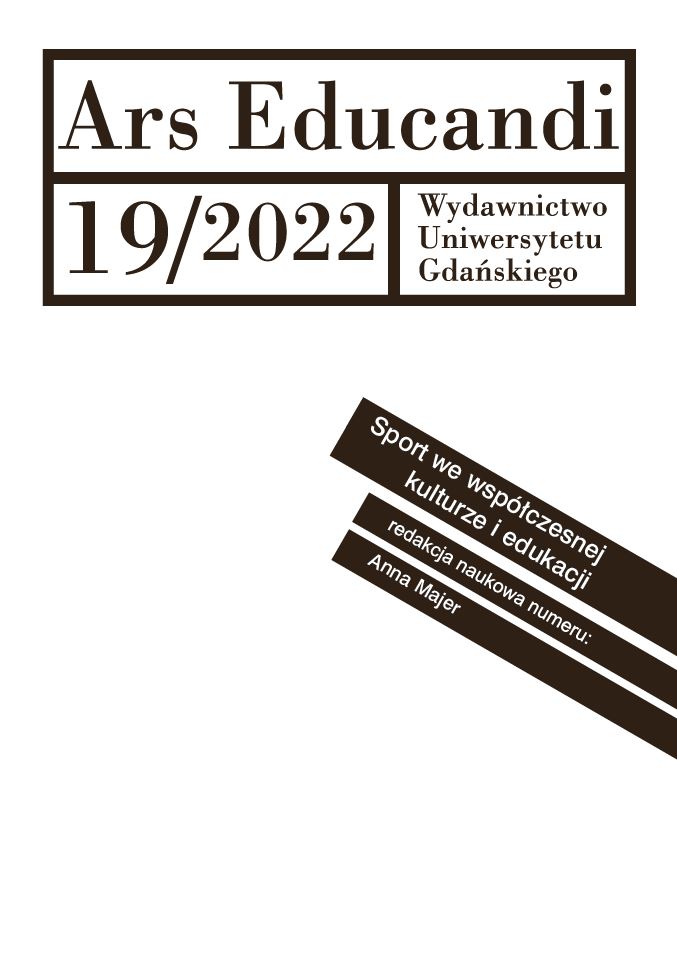Virtual reality in education – analysis of teachers opinions on the use of VR technology in school education
DOI:
https://doi.org/10.26881/ae.2022.19.05Keywords:
Virtual reality, immersion, VR in education, VR in therapy, VR in sportAbstract
The aim of the article is to examine the opinions of teachers and specialists working in educational institutions on the use of virtual reality in education in Poland. The research also focuses on the issue of the availability of VR in schools, the possibility of using VR on school subjects and on the assessment of positive and negative aspects of the use of VR in teaching. Using polish and foreign literature, in the context of various areas of human life, including education, therapy, rehabilitation or sport, the current state of knowledge was analyzed and practical ways of using VR. In the empirical part of the article, the collected quantitative data were analyzed, which, among other things, show that the majority of surveyed schools do not yet have VR. Teachers, on the other hand, see the educational potential of this technology and the majority of respondents would like to have VR in their school.
Downloads
References
Literatura
Aubrey J.S., Robb M.B., Bailey J., Bailenson, J.N. (2018). Virtual Reality 101: What You Need to Know About Kids and VR. San Francisco, CA: Common Sense.
Babich N., 2019, How VR In Education Will Change How We Learn And Teach.
Brzezińska A., 2020, Raport - Od mediów do rzeczywistości, raport Centrum Cyfrowego.
Bohdanowicz Z., Kowalski J., Kobyliński P., i inni, 2021, Laboratorium Interaktywnych Technologii w Ośrodku Przetwarzania Informacji, https://opi.org.pl/ruszyla-akademia-opi-pib/ [dostęp: 05.05.2022].
Buchta K., Górecka D., Tłuczykont Ł. i inni, 2020, Wirtualna rzeczywistość w rehabilitacji – rys historyczny.
Buchner A., Wierzbicka M., 2020, Raport Centrum Cyfrowego "Edukacja zdalna w czasie pandemii".
Dragani R., 2019, Brain science: Why VR is so effective for learning, Verizon News Archives.
Ho Shing Ip H., Li Ch., 2022, Defining Virtual Reality enabled Learning.
Krokos E. Plaisant C., Varshney A., 2018, Virtual memory palaces: immersion aids recall.
Merchant Z., Goetz E.T., Cifuentes L. i inni, 2014, Effectiveness of virtual reality-based instruction on students’ learning outcomes in K-12 and higher education: a meta-analysis, Computers & Education, Vol. 70, pp.29–40.
Mikołajczyk K., 2019, VR w edukacji – subiektywny przegląd możliwości, „e-mentor”, nr 2(79), s. 33–40, http://dx.doi.org/10.15219/em79.1410.
North M.M., North S.M., 1994, Virtual Environment and Psychological Disorders, Electronic Journal of Virtual Culture, nr 2(4).
Rosenberg R. S., Baughman S. L., Bailenson J. N., 2013, Virtual Superheroes: Using Superpowers in Virtual Reality to Encourage Prosocial Behavior.
Stasieńko J, Dytman-Stasieńko A., 2020, Odmienne przestrzenie uzdrawiania – psychologiczne terapie VR w perspektywie krytycznych definicyjnych aspektów pojęcia wirtualnej rzeczywistości, Przegląd Kulturoznawczy, nr 2 (44) 2020, s. 75–91.
Sztumski J., 2005, Wstęp do metod i technik badań społecznych. wyd. „Śląsk”.
Żmigrodzka, M., 2017, Techniki wirtualnej rzeczywistości w procesie edukacji, MINIB, 26(4), 117-134.
Johnson & Johnson wants to bring VR to doctors- in-training worldwide, https://business.oculus.com/case-studies/johnson-and-johnson/ [dostęp: 05.05.2022].
Źródła internetowe
• https://dallasinnovates.com/heres-how-fort-worths-neuro-rehab-vr-is-using-virtual-reality-to-improve-physical-therapy-recovery/ [dostęp: 05.05.2022]
• https://oazavr.pl/e-sport-w-vr/ [dostęp: 05.05.2022]
• https://www.startengine.com/val [dostęp: 05.05.2022]

 Academic Scientific Journals
Academic Scientific Journals




